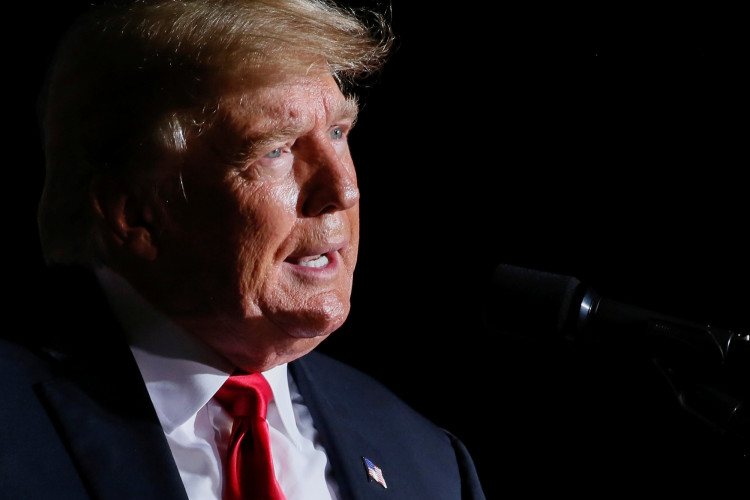A New York judge is expected to make a pivotal decision on Tuesday regarding whether to overturn President-elect Donald Trump's conviction in a high-profile criminal case tied to hush money payments. This legal juncture comes in the wake of a recent U.S. Supreme Court ruling on presidential immunity, which may significantly impact Trump's legal standing.
The decision rests with Manhattan Supreme Court Justice Juan Merchan, who oversaw Trump's trial earlier this year. The former president was convicted on charges of falsifying business records in connection with a $130,000 payment to adult film actress Stormy Daniels during his 2016 presidential campaign. The payment was intended to silence allegations of an affair, which Trump denies. He maintains that the prosecution was politically motivated to harm his campaign.
Trump, 78, could face up to four years in prison, but his defense team has argued that the Supreme Court's recent decision grants him immunity from prosecution for actions taken during his presidency. The defense contends that certain evidence presented at trial, such as Trump's presidential financial disclosures and testimonies from former White House aides, improperly influenced the jury's decision.
Prosecutors, however, argue that the case centers solely on personal conduct that occurred before Trump assumed office. "The evidence that he claims is affected by the Supreme Court's ruling constitutes only a sliver of the mountains of testimony and documentary proof that the jury considered," they stated. The prosecution emphasized that Trump's actions to reimburse his then-attorney, Michael Cohen, for the payment to Daniels were falsely logged as legal expenses by his company, a move they claim was aimed at concealing the true purpose of the funds.
The Supreme Court's ruling, issued shortly after Trump's conviction, held that ex-presidents cannot be prosecuted for actions taken during their term if related to official duties. Trump's legal team has seized on this ruling, arguing that his conviction must be reconsidered in light of the court's broad interpretation of presidential immunity.
Justice Merchan faces multiple options: he could throw out the conviction entirely, order a new trial, or allow the conviction to stand, potentially leading to sentencing later this month. Trump's legal strategy has focused on both overturning the verdict and seeking to move the case to federal court. So far, attempts to shift the case's jurisdiction have been rejected, but appeals are ongoing.
The hush money case marks the first criminal conviction of a former president in U.S. history, adding further tension to the legal battle as Trump prepares to return to the White House. His recent electoral victory over Vice President Kamala Harris has emboldened his legal team to push harder for dismissal or retrial, with many legal analysts suggesting his status as president-elect could sway judicial considerations.
Complicating matters, the Department of Justice may drop its separate cases against Trump, related to the aftermath of the 2020 election and alleged mishandling of classified documents. DOJ policy traditionally shields sitting presidents from prosecution, raising questions about the fate of those cases once Trump assumes office in January.
Quinnipiac University Assistant Professor of Law Wayne Unger commented, "Many legal scholars, including myself, agree it's almost certain he will never see the inside of a jail cell." Former prosecutor Neama Rahmani concurred, stating, "Now that Trump has won, his criminal problems go away." Trump could also pardon himself in federal matters once in office, further complicating the legal landscape.






